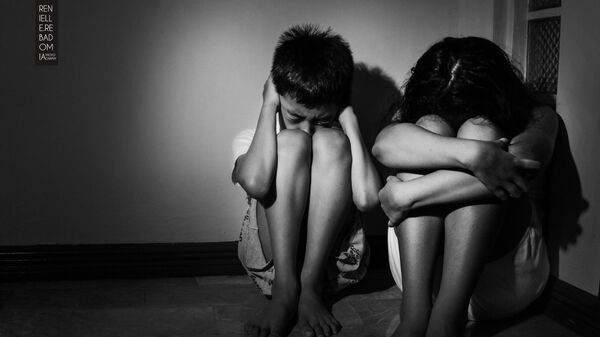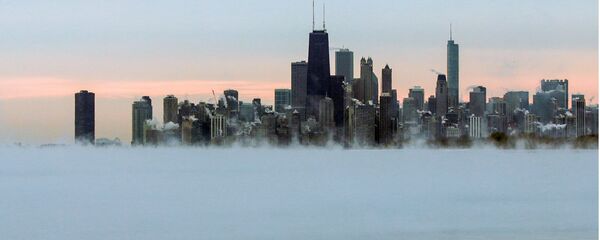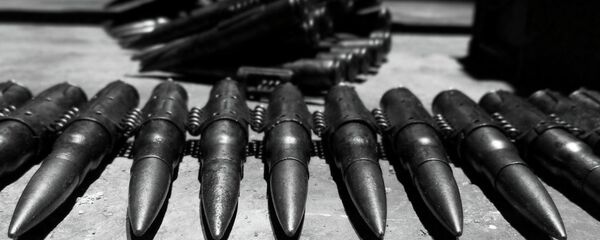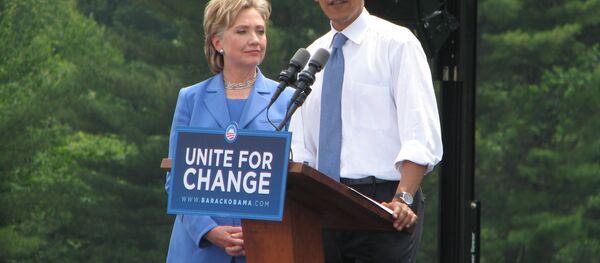Fear of corruption was followed by "terrorist attack," and “not having enough money for the future." "Terrorism," defined as being personally affected by a specific attack, and "government restrictions on firearms and ammunition," tied for fourth place. "Clowns," a buzzed-about topic this year, ranked second to last on the list.
The study is based on the results of an April 2016 sampling of 1,511 adults across the US who were asked about their levels of fear regarding 79 scenarios including crime, government action and attitude, economic and environmental disasters, personal worries, including relationship problems and loss, technology and other topics, Chapman University explains in its report. Participants ranked their responses in four steps from "very afraid" to "not afraid."
Over 60% of respondents said they were "afraid" or "very afraid" of corrupt government officials, 41% of a terrorist attack, 39.9% of not having enough money for the future and 38.5% of both terrorism and government gun control. Rounding out the top 10 fears were "people I love dying," "economic or financial collapse," "identity theft," "people I love becoming seriously ill," and "the Affordable Care Act/Obamacare," which 35.5% of respondents reported being afraid of.
The survey revealed a society riddled with distrust of individuals and fears of being hoodwinked or misled.
"Three really striking findings came to the fore in the current wave of [the survey]," Chapman University Sociology Professor Christopher Bader explained in a video about the findings on the university's website. "First, we found that Americans have a high tendency toward belief in conspiracy theories. We also found that Americans have a very pronounced fear of Muslims and Islam as a religion. And finally, we found that Americans don’t quite know what to do when it comes to reporting possible terrorist activity."
Americans love their "conspiracy theories." The "vast majority" of respondents believed in at least one of nine common conspiracy theories presented to them, with people most likely to agree that the government is hiding information about the 9/11 attacks, the assassination of John F. Kennedy, and alien activity. Roughly half of respondents believed in some kind of 9/11 or JFK assassination cover-up and 42.6% in hidden alien activity. More than 42% think there’s something fishy about global warming.
"The United States is a very paranoid society, but conspiracy theories are more common and more popular at times of social upheaval," Bader said.
The survey also found that fear was driving changes in American lives. Ann Gordon, associate political science professor at Chapman University, noted that a widespread fear of terrorism in America has led many to make changes in their daily lives, including avoiding mass gatherings or postponing travel overseas, according to responses. They want to help too: Americans believe it is their responsibility to report suspicious activities, "but they're really unaware of what those activities are, so it’s really important that Americans be educated on what to report and also on what not to report."
"We were surprised at the extent of the distrust of Muslims in America," said Chapman University Sociology Department Chair Edward Day. The survey asked participants about several groups of people they might mistrust – "strangers" were the only people Americans reported distrusting more than "Muslims," followed closely by "atheists."
The study showed that 44% of the American population expressed distrust of Muslims based simply on their religion. Nearly 60% said there should be more screening of Muslims at airports; however, more than half of respondents also said they’d be comfortable with having a mosque in their neighborhood.
"You're more likely to distrust Muslims if you're white, if you're male, if you're rural, if you're older, if you have a high school education or less," Day said. People are afraid of what they don't know, he commented, and these are the people least likely to meet a Muslim in their daily life.
In a statement for NBC, Bader said "We have noticed that top fears tend to reflect to key factors: uncertainty and lack of control," and that people "tend to fear things the most that have the potential to significantly upend their lives and those fears are even greater if they perceive having little control over that phenomenon."





